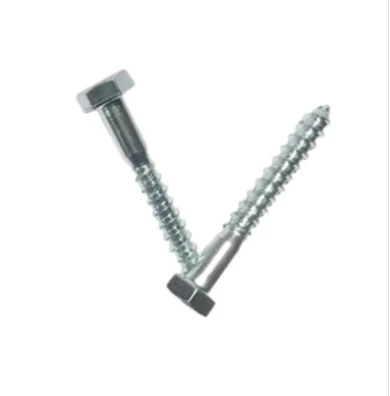Nov . 07, 2024 19:10 Back to list
High-Quality 316 Stainless Steel Nuts for Superior Corrosion Resistance and Durability
Understanding 316 Stainless Steel Nuts A Comprehensive Overview
When it comes to securing components in various applications, the choice of fastening materials is critical. Among the plethora of options available, 316 stainless steel nuts stand out due to their remarkable properties and wide range of applications. In this article, we will explore the characteristics of 316 stainless steel nuts, their benefits, applications, and why they are preferred in industries that demand high performance and reliable fasteners.
What is 316 Stainless Steel?
Before diving into the specifics of 316 stainless steel nuts, it's essential to understand what 316 stainless steel is. It is an austenitic stainless steel alloy that contains molybdenum, which enhances its corrosion resistance compared to other stainless steels, such as 304. The addition of molybdenum makes 316 stainless steel particularly effective in environments with chlorides, such as marine applications, chemical processing, and other corrosive settings.
Properties of 316 Stainless Steel Nuts
1. Corrosion Resistance One of the most notable features of 316 stainless steel nuts is their exceptional resistance to corrosion. This property is crucial for maintaining the integrity of structures and machinery that face harsh environments.
2. High-Temperature Resistance 316 stainless steel nuts can withstand high temperatures, making them suitable for applications that involve heat exposure. They retain their mechanical properties even at elevated temperatures.
3. Strength and Durability These nuts demonstrate high tensile strength, ensuring that they can withstand significant loads without deforming or breaking. This characteristic is vital in applications where safety and reliability are paramount.
4. Ease of Fabrication The austenitic nature of 316 stainless steel allows for easy machining and fabrication, making it an ideal choice for manufacturing various types of nuts, bolts, and other fasteners.
5. Non-Magnetic Properties Unlike some other metals, 316 stainless steel is non-magnetic, making it suitable for applications in sensitive environments, such as medical devices and research laboratories.
Benefits of Using 316 Stainless Steel Nuts
The benefits of using 316 stainless steel nuts extend beyond their properties. Here are some advantages that make them a preferred choice in many applications
316 stainless steel nuts

- Longevity Products made from 316 stainless steel tend to last longer than those made from other materials
. This longevity translates into cost savings and reduced maintenance efforts.- Safety In applications where fasteners are under significant stress or in potentially dangerous environments (like the oil and gas industry), using 316 stainless steel nuts enhances safety and reliability.
- Aesthetic Appeal 316 stainless steel presents a polished and attractive finish. This aesthetic quality makes it suitable for visible applications where appearance is essential.
Applications of 316 Stainless Steel Nuts
316 stainless steel nuts are versatile and used across various industries. Some notable applications include
1. Marine Industry Due to their high corrosion resistance, 316 stainless steel nuts are commonly employed in boats, ships, and marine equipment.
2. Chemical Processing These nuts are frequently used in valves, pumps, and other equipment exposed to harsh chemicals.
3. Food and Beverage Industry In food processing plants, 316 stainless steel is often used to ensure hygiene and prevent contamination.
4. Construction For structures exposed to the elements, such as bridges and outdoor installations, 316 stainless steel nuts provide durability and longevity.
5. Medical Equipment The non-magnetic and corrosion-resistant properties make these nuts suitable for use in medical devices and surgical instruments.
Conclusion
In summary, 316 stainless steel nuts are a dependable choice for various applications requiring high performance, durability, and resistance to corrosion. Their robust properties make them suitable for industries ranging from marine and chemical processing to construction and medical fields. When selecting fasteners, considering the benefits of 316 stainless steel can lead to improved performance and reliability, ensuring that structures and machinery function safely and effectively over time. As industries continue to evolve and environments become more challenging, the role of 316 stainless steel nuts in maintaining integrity and safety will remain vital.


